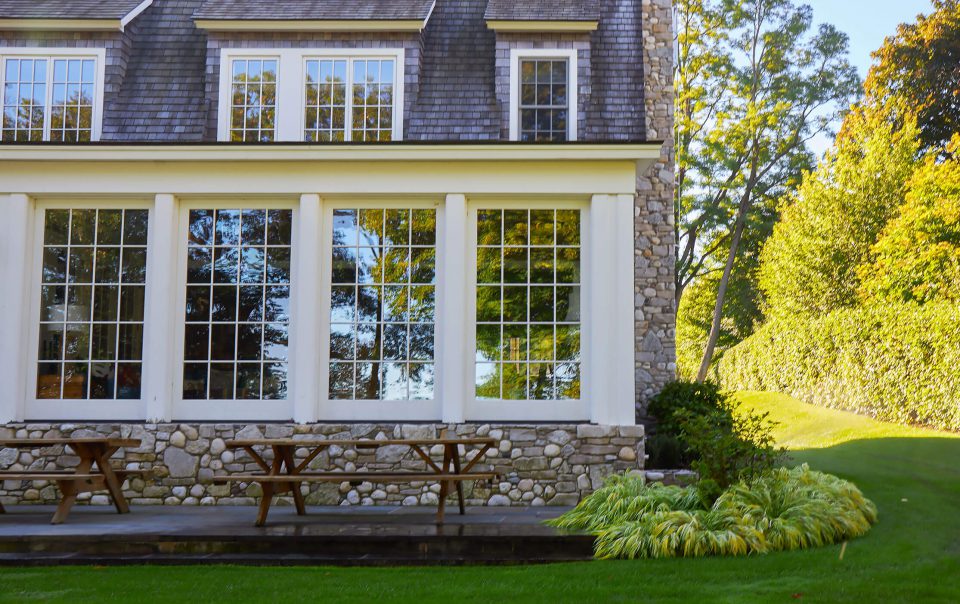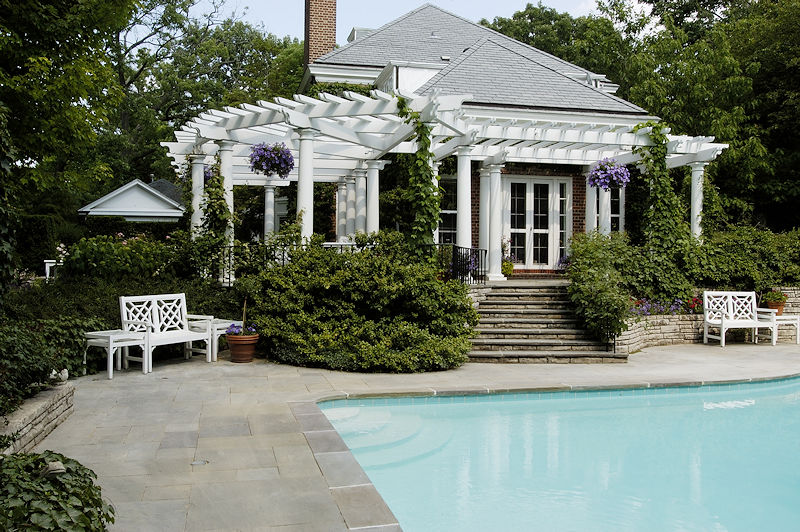
Here are Matt Kilburn’s thoughts…. he is a Houzz.com contributor and a landscape designer based in Vancouver, Canada.
Mosquitoes.
In most areas mosquitoes are a major issue in the summertime and can hinder outdoor activities. They thrive in areas with a regular water supply and can multiply very quickly into large numbers if left unchecked. All of your garden’s water features should have movement on the surface of the water. Mosquito larvae can survive only in stagnant water, so if a pump is installed in a water feature, mosquito colonies are less likely to survive. Introducing fish into a pond is also a great way to combat mosquitoes, since they eat the larvae before they hatch. Goldfish, minnows and betta fish (also called Siamese fighting fish) are all great options for controlling mosquitoes. Finally, there are several plants you can add to your garden to help repel mosquitoes. Catnip is a natural mosquito repellent that grows in most areas as an easy-growing perennial. Marigolds also have a distinctive smell that is unbearable to mosquitoes. Try planting these annuals in pots around your patio and next to windows, and the smell will prevent mosquitoes from hanging around.

Winnetka, IL Schmechtig Landscapes
Wasps.
As the summer winds on, wasps can become a major issue in the garden. These aggressive carnivores have ruined many an outdoor dinner. Unfortunately, vibrant-colored blooms can attract them, so put plants that bloom in the summer away from sitting and dining areas. You can also deter wasps by putting out a bowl of crushed cloves on the dining table — the smell is offensive to wasps, and they will find somewhere else to spend their time.
Ants.
Depending on where you live, there are many types of ants that can make a home in your garden. Some ants are harder to get rid of than others.
Thankfully, the ants in Vancouver, where I live, are relatively easy to control. As a rule of thumb for all ants, focus on where they live and what they feed on to dissuade them from your garden. Ants don’t like the smell of cinnamon or mint, so if you are able to find the mound where the ants are coming from, sprinkle some cinnamon or move a potted mint plant to the area (mint should always be contained, as it is an aggressively invasive plant) to make the area less hospitable to these little pests. But ants are tenacious critters, and they may just move their home elsewhere in your garden. That’s why it’s also important to focus on their food source. One of the ways that ants gain sustenance is by “farming” the honeydew secreted from aphids. They will even go so far as to move the aphids onto prime real estate on fruit trees and develop elaborate systems for aphid farms to produce honeydew.
And this leads us to our last pest Aphids.
Aphids can be tricky to eradicate, and the solution usually comes down to a combination of tactics. I’ve found blasting them off plant leaves with the hose to be the most effective once they’ve infested a plant (versus soap-based sprays, which can often damage leaves), but there are also beneficial insects that can be introduced to your garden to deal with an aphid problem.
Read more of Matt Kilburn’s article go to : http://www.houzz.com/ideabooks/14611953/list?utm_source=Houzz&utm_campaign=u319&utm_medium=email&utm_content=gallery25
W4399 South Lakeshore Drive
Lake Geneva, WI 53147
Office
262-248-9415
8:00 a.m. – 4:00 p.m.
Sheldon Landscape
Sheldon Landscape is a landscape contractor who provides landscape design, landscape installation, and landscape services for clients in Lake Geneva, WI, and surrounding communities including Delavan Lake, Fontana, and Williams Bay, WI.
Copyright © Sheldon Landscape, Inc.


